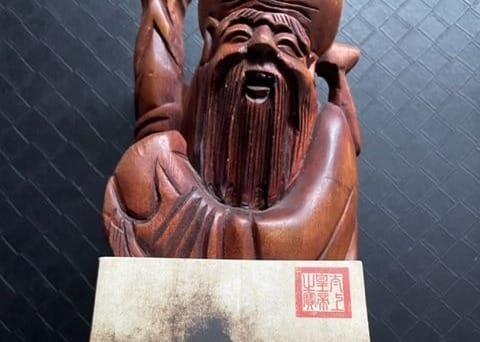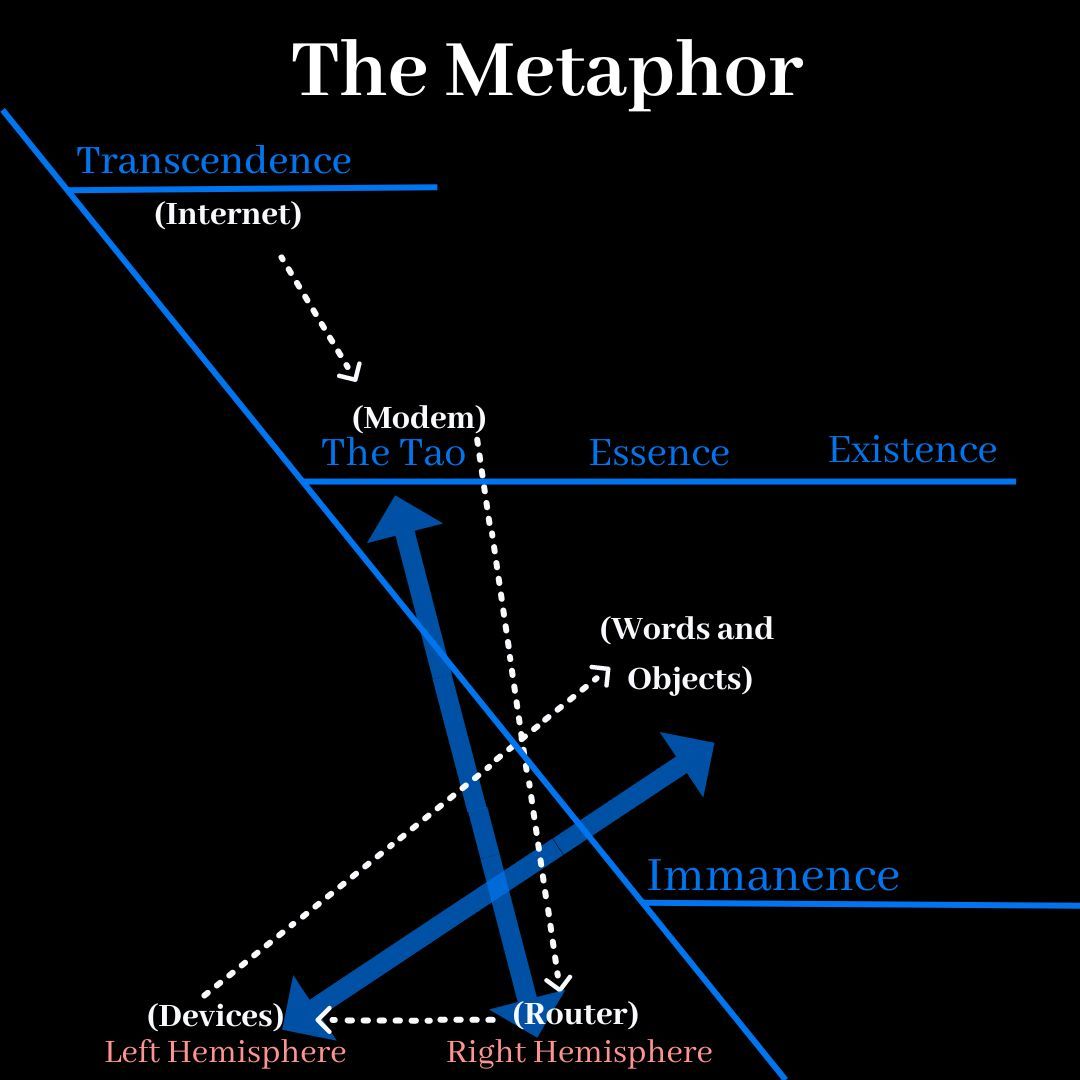Tao Teh Ching: A Short Meditation on Its Title and Its Importance
Introduction to an 81-Part Series

The semi-legendary founder of Taoism Lao Tzu ("Old Philosopher") mounted a water buffalo at the end of his life and rode off to the western boundary of China. There, legend tells us, a farmer recognized him and asked him to write down his philosophy of life.
The result: The Tao Teh Ching, a book filled with thoughts (or non-thoughts) about trying (or not trying) to live in the Tao: a perfect accompaniment to his act of turning his back on the world by mounting that water buffalo in the first place.
Eastern Thought Arguably Respects the Right Hemisphere's Primacy
Iain McGilchrist says Eastern thought has avoided the left hemisphere bias ushered in by Plato and his emphasis on Forms, which led to an undue emphasis on abstraction and permanence (left hemisphere properties) and a neglect of tacit knowledge and change/flow.
I think McGilchrist is unduly harsh on Plato, but no matter: he's correct that Eastern thought didn't evolve (or devolve, if you like) like Western.
Eastern thought remained fluid, embraced paradox, and valued laughter (a thing that erupts when your logical (left hemispheric) thoughts are yanked out of their lane into something unexpected).
The Book's Full Title Emphasizes the Tao's Importance in Worldly Affairs
Eastern thought in its purest form is The Book of the Way: Tao Teh Ching. The book's full title is significant:
The Book of the Immanence of the Way
or
The Book of the Way and of How It Manifests Itself in the World
The title is significant because it emphasizes that the Way (the Tao) manifests itself in the world.
The Tao isn't some airy thing that might or might not exist and, in any event, is so hopelessly subjective and unprovable that it's irrelevant in our world.
No, it's very relevant.
And that's something Western thought forgot.
It forgot it because it surrendered itself to rule by the left hemisphere, which has no connection to the Tao.
The right hemisphere is the router that connects to the Tao's modem (which channels Transcendence (the Internet, to continue the metaphor)).

The Tao is that "metaxy-like" realm where immanence and transcendence come together. It receives the transcendent and sends its signals to the right hemisphere, for transmission through the left for application in the world.
It's a process, yes, but it is relevant.
The Tao is Striking Back
Western culture lost the connection shortly after the time of Thomas Aquinas and has been spiraling into the left hemisphere abyss ever since.
But the Tao is striking back.
The signs are all around us. The signs have been manifesting themselves for over a thousand years, and I think they're picking up steam today, fueled by independent creators like Joe Rogan who are willing to explore topics outside the mainstream (which is strongly left-hemispheric for the tautological reason that the left hemisphere formed today's culture, frames its discussions, and is the guiding current of the mainstream).
But the left hemisphere's hegemony is breaking. Its attempt to squash the Tao forever is falling short. It might accomplish it through artificial intelligence, but it's a race against the clock now.
Western culture is waking up from the swindle. It knows it has been starved of a critical component of existence: The Tao.
Even Dwight Schrute from The Office knows it.
81 Short Meditations on Its 81 Chapters
Tao Teh Ching is the Tao's gospel. I will review each of its 81 chapters, drawing The Hemisphere Hypothesis principles that can be found in each.
There are a slew of English translations and they're not remotely similar. In fact, they're maddeningly different at points. Professors of Chinese thought recommend students consult two or three translations. I will primarily be consulting two (and occasionally consulting a third):
The John C. H. Wu translation. Wu is a Catholic convert. He translated the Book of John with the opening words, "In the beginning was the Tao . . .". I've been reading from this version for five years and love it.
The Stephen Mitchell translation, which is what McGilchrist references in The Matter with Things. The book is published in a tiny paperback that is surprisingly easy on the eyes, and it has excellent commentary on each chapter. I love the Wu translation, but this Mitchell edition has become my favorite.
